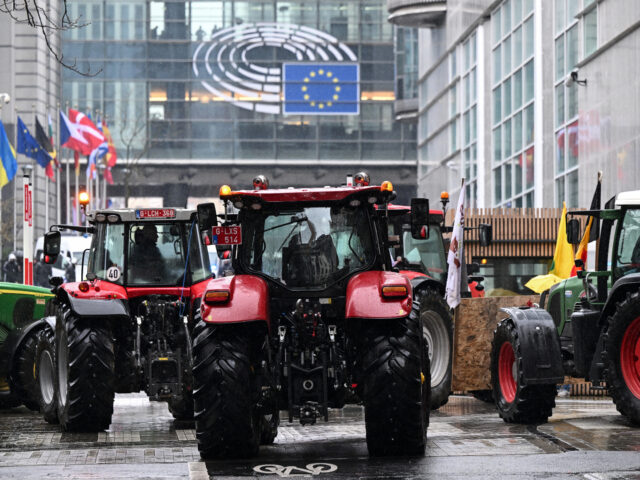In response to heavy pressure from farmers across Europe, the EU announced on Wednesday that it would be adding several staple foods to its list of Ukrainian agricultural products with “emergency breaks” to prevent the country from flooding markets in Europe with cheap produce and undercutting local farmers.
The European Parliament said on Wednesday that it has agreed to extend the temporary suspension of tariffs and other restrictions on Ukrainian agricultural exports to the EU for another year, until at least June 5th 2025, to help prop up the economy of the war-torn country. However, farmers throughout Europe have complained that they are being unfairly undercut by cheaply produced products from Ukraine, which not produced under the same restrictive and expensive environmental regulations, and has a much cheaper workforce.
Following months of tractor protests from farmers throughout Europe — notably blockades at the Ukraine border with Poland — the EU said that it would be adding oats, maize, groats, and honey to its emergency break list, meaning that it can halt imports swiftly if they exceed the average set in 2022 and 2023.
The list had previously only included items such as eggs, poulyry, and sugar, so the addition of grainst to the list is a significant move. However, the EU refused to go so far as to include wheat on the emergency break list for Ukraine, often dubbed the “breadbasket” of Europe over its high wheat production.
Sandra Kalniete MEP of the European People’s Party said of the compromise: “Tonight’s agreement reinforces the EU’s continued commitment to stand by Ukraine in the face of Russia’s brutal war of aggression until Ukraine’s victory. Russia’s targeting of Ukraine and its food production also impacts EU farmers.
“The Parliament heard their concerns, and bolstered safeguard measures that would alleviate the pressure on EU farmers should they be overwhelmed by a sudden surge in Ukrainian imports.”
The announcment markes the second major concession won by European famrers in as many months, with European Commission President Ursula von der Leyen saying last month that she would be trashing plans to mandate farmers cut their methand and nitrogen emmisisons by one third by 2040. Brussels also abandoned plans to cut puseticide usage by half during the same time frame.
In a blow for Great Reset advocates, farmers also managed to pressure eurocrats into scrapping propaganda campaigns against eating meat.
However, many farmers groups appear intent on continuing their protests and apply pressure before the upcoming European Parliament elections in June, in which pro-farmer populists are set to make large gains.
The chairman of the OPZZ Farmers and Agricultural Organizations Sławomir Izdebski said on Wednesday that the latest agreement does not go far enough, mentioning the lack of protections for those enganged in animal husbandry and milk producers.
The Polish farmers will look to continue their disruptive protests at the border with Ukraine, deamind that their government withdraw from the European Green Deal and to close the borders to non-EU agriculture.
According to Polish state news agency PAP, 580 farmer protests were held across the country on Wedensday, with farmers holding banners reading: “We apologize for the inconvenience, but we have Green order to overthrow” and “You will feel hunger, you will respect the farmer”.

COMMENTS
Please let us know if you're having issues with commenting.